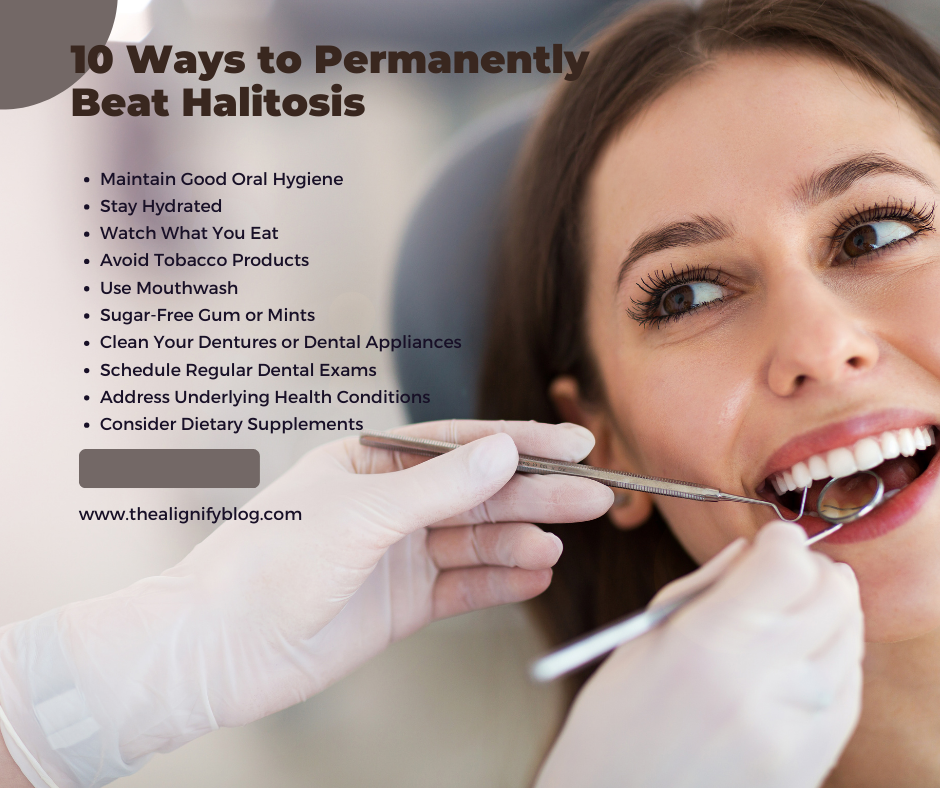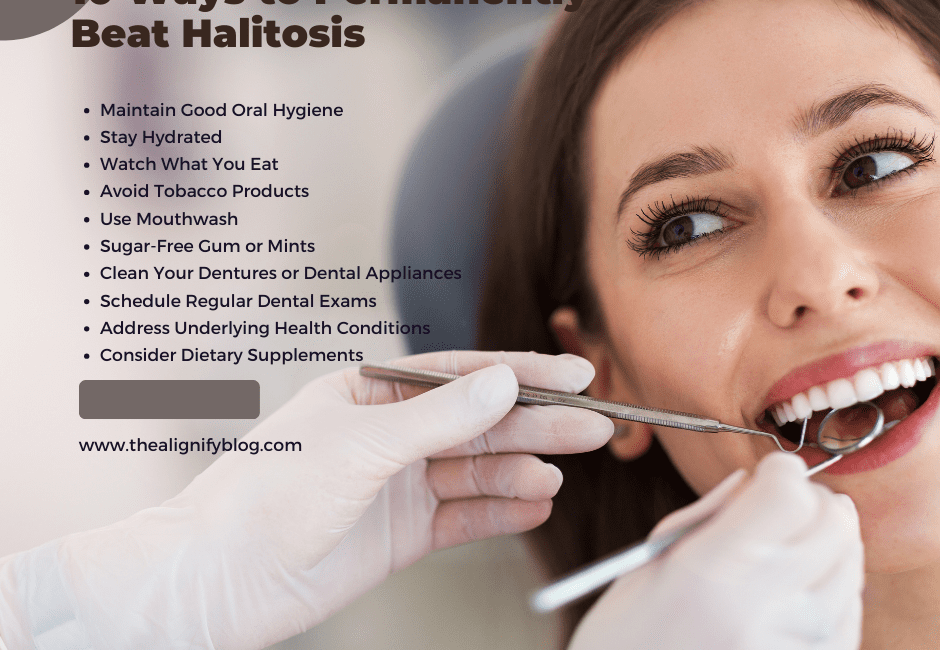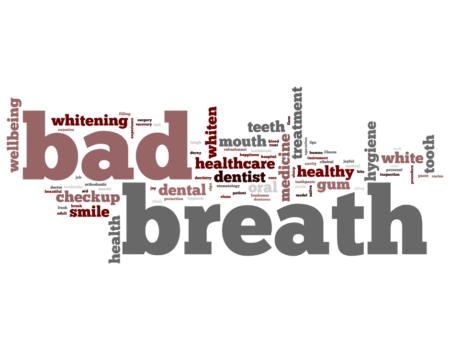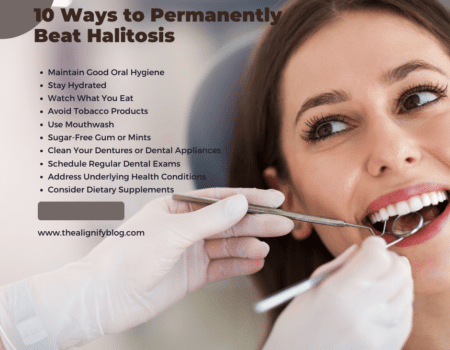
Halitosis, the medical word for foul breath, may be unpleasant and affect your self-esteem. However, there are a few simple things you can do to combat this and keep your inhalations fresh.
1. Maintain Good Oral Hygiene: To remove bacteria and food particles that may cause respiratory difficulties, floss daily and wash your teeth at least twice a day. It’s also crucial to remember to wipe your tongue since viruses can accumulate and generate unpleasant odours.
2. Stay Hydrated: Drink enough water throughout the day to keep your mouth moist and wash out food pieces and germs. It’s critical to stay hydrated since dry mouth can cause respiratory issues.
3. Watch What You Eat: Foods heavy in onions, garlic, and spices might be a contributing cause. Avoid consuming these meals as much as possible. Instead, cleanse your teeth or chew unsugared gum to enhance your breath.
4. Avoid Tobacco Products: Smoking and other tobacco products can cause smelly breath in addition to tooth discoloration. Giving up smoking will significantly improve your overall health and breathing.
5. Use Mouthwash: To help eradicate germs and freshen your breath, use an antibacterial mouthwash. For maximum effectiveness, search for a mouthwash containing compounds like cetylpyridinium chloride or chlorine dioxide.
6. Sugar-Free Gum or Mints: Chewing on sugarless gum or sucking on sugar-free mints increases saliva production, which aids in the elimination of pathogens and the cleanliness of meals. To help prevent cavities, search for gum or mints with xylitol, a natural sugar substitute.
7. Clean Your Dentures or Dental Appliances: If you wear retainers, dentures, or any other form of dental device, make sure to clean them regularly to remove any food particles or germs that might cause difficulties.
8. Schedule Regular Dental Exams: Frequent dental checkups are required to maintain your mouth healthy and to identify any underlying issues that may be causing your irritate breath. Professional cleanings by your dentist are another way to remove tartar and plaque buildup.
9. Address Underlying Health Conditions: Bad breath can occasionally indicate underlying health issues such as gum disease, dry mouth, or respiratory infections. If you continuously get halitosis while receiving the greatest tooth treatment, consult your physician or dentist to rule out any minor medical issues.
10. Consider Dietary Supplements: By encouraging a healthy balance of viruses in the mouth and decreasing sulfur compounds that cause odour, various dietary supplements, such as probiotics and zinc, may help reduce halitosis.
By following these simple tips and practicing good dental care, you may easily overcome foul-smelling breath and achieve a fresh, confident grin. Remember to stick to your oral hygiene regimen, and if you notice a strong or persistent bad odor, seek professional help.







No Comment! Be the first one.